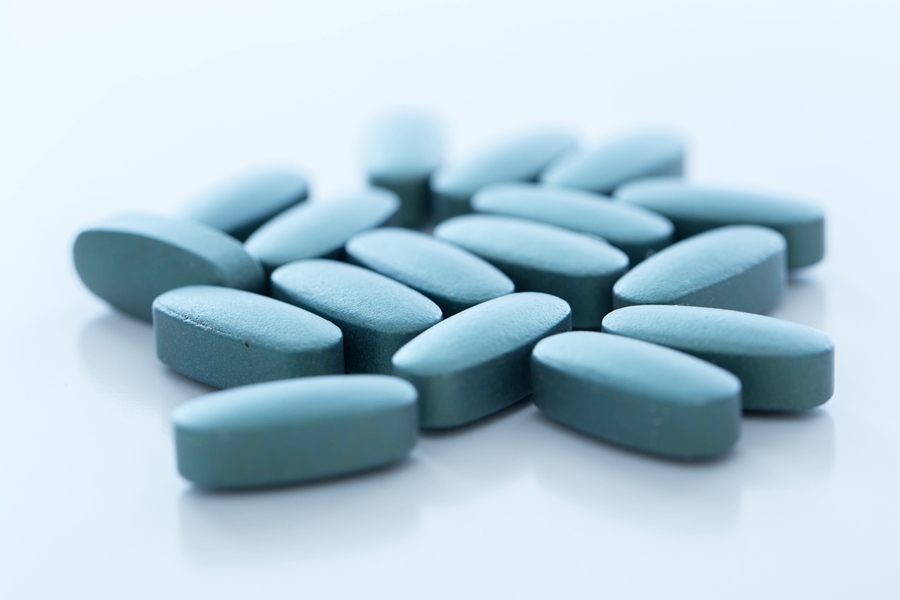Abilify, which is the brand name for aripiprazole, is an antipsychotic medication. It’s typically prescribed to treat mental health and behavioral conditions like bipolar I disorder, schizophrenia, autism spectrum disorder, and Tourette’s syndrome.
While Abilify is effective at treating these conditions, it comes with some risks you should be aware of before taking it. The FDA has even released boxed warnings for serious side effects it can have, such as causing suicidal thoughts.
To help you make an educated choice before taking this medication, we’ve outlined everything you should know in the rest of this article. Read on to learn more about the risks associated with Abilify and relevant research and clinical perspectives.
Mechanism of Action
Before learning about the risks of Abilify, it’s important to understand how this medication affects the mind and body when you take it.
Abilify is known as a dopamine partial agonist. Essentially, that means it helps balance dopamine levels in the brain. Dopamine is a critical neurotransmitter that regulates your mood, reward system, motivation levels, and more. It’s often known as a “feel-good” hormone since it can put you in a good mood when it’s released into the brain.
However, too much or too little of it can cause mental distress or behavioral problems. When someone is struggling with mental health issues like schizophrenia or bipolar disorder, imbalanced dopamine levels are a common cause behind the primary symptoms experienced, such as delusions, hypomania, or depression.
That’s why taking a partial dopamine agonist like Abilify can help. Depending on the condition, it’ll either block dopamine release if your brain’s levels are too high or stimulate its release if levels are too low.
How Abilify Can Ruined Your Life in Research
While Abilify can have many benefits, there are also several side effects noted in clinical research. Let’s review both the common side effects and rare severe side effects in detail.
Common Side Effects of Abilify
Some of the most common side effects of Abilify are:
- Fatigue: It’s often noted that Abilify can make you feel very tired or dizzy after taking it. Sometimes, it can even affect your eyesight, making it blurry or distorted. Therefore, avoiding driving or doing activities using heavy machinery is generally recommended until you know how you respond to the medication.
- Weight gain: Most clinical trials show that weight gain from Abilify is rare. That said, some have still reported patients gaining small amounts of weight, between 1-10 pounds, after starting the medication and having no other significant changes in their lifestyle or eating habits.
- Nausea: This is the most common side effect reported. It’s usually caused by taking Abilify on an empty stomach. Therefore, taking it with food and drinking plenty of fluids is recommended.
- Sleep problems: Some who have taken Abilify reported having trouble falling asleep. It’s also been noted that it can affect sleep differently depending on the individual. Some people also experience general sleepiness when taking the medication, which makes it hard to stay awake or focused during the day.
Severe Side Effects
Clinical trials have also reported rare but more severe side effects from patients taking Abilify.
Tardive Dyskinesia and Movement Disorders
Research has indicated that Abilify can cause symptoms of tardive dyskinesia and other movement disorders. Tardive dyskinesia is a condition that causes involuntary and repetitive movements, such as blinking rapidly, grimacing, or tapping your feet.
One case report highlighted a 28-year-old man who took Abilify for 5 years. After 2 years on the medication, his doctor increased the dose from 10mg daily to 20mg. Shortly after, he started experiencing symptoms of tardive dyskinesia, such as involuntarily twisting his neck and left arm.
Finally, after about 3 years of these symptoms, he sought out medical attention. A treatment team had him slowly taper off Abilify, and the symptoms were reduced. Then, a medication regimen was applied to reduce symptoms fully during a hospital stay.
Since symptoms began after increasing the dose, it shows that managing dosage is important with Abilify, so treatment professionals must pay close attention when prescribing it. You also shouldn’t wait to report any side effects and seek immediate medical attention if anything severe occurs after starting the medication.
Neuroleptic Malignant Syndrome
Neuroleptic malignant syndrome is a very rare reaction to drugs that block dopamine receptors. It can cause life-threatening symptoms like high fever, extremely low or high blood pressure, and rapid heart rate.
One case study discussed a 64-year-old man who was administered aripiprazole after surgery. Shortly after, he experienced symptoms of neuroleptic malignant syndrome. His primary symptoms were a fever, muscle rigidity, and altered mental status. After stopping the medication and receiving supportive care, his symptoms subsided.
Compulsive Behaviors
Some rare case reports have also mentioned Abilify causing compulsive behaviors like gambling problems or hypersexuality.
One meta-analysis reviewed 6,000 records from patients who were prescribed Abilify. Within those, they found 59 records of adverse effects involving compulsive behavior. The most common behaviors that occurred after starting the drug were gambling, hypersexuality, symptoms of OCD, and eating problems.
These symptoms were experienced by both those who previously had problems in those areas and those who didn’t. They all started experiencing symptoms within 30 days of starting the medication and had the symptoms subside within 30 days after stopping it.
FDA Warnings and Regulatory Actions
Along with case reports of serious side effects, the FDA has also released several warnings related to Abilify.
In 2014, the FDA released an analysis highlighting Abilify’s potential to cause suicidal thoughts and actions. It also recommended that patients with dementia-related psychosis should avoid taking the medication since it resulted in an increased mortality rate. They later released an updated report in 2017 highlighting similar findings.
In 2016, the FDA released another warning about Abilify’s potential to cause compulsive behaviors like gambling, shopping, eating, and hypersexuality. They recommended those taking the medication be aware of this potential side effect and that those who’ve had problems with impulsive behavior before should avoid taking this medication.
Management Strategies for Patients and Healthcare Providers
Due to the adverse effects that Abilify can have, it’s important to remain aware of potential side effects and report them immediately to your doctor.
Abilify can also cause withdrawal symptoms if you stop taking it abruptly. Common withdrawal symptoms include nausea, lightheadedness, tachycardia, excessive sweating, and anxiety. Some of these can be severe and may require immediate medical attention. Therefore, you should avoid stopping it suddenly and instead work with your doctor to taper off the medication slowly.
Medical teams prescribing Abilify should incorporate regular monitoring and follow-up appointments to ensure patient safety.
Alternative Treatment Options
There are several alternative medications to Abilify if you’re concerned about its potential side effects. Some common options for different conditions are:
- Bipolar I disorder: Mood stabilizers are the most common alternative to antipsychotics for bipolar I. Some common options are lithium, valproic acid, and carbamazepine.
- Schizophrenia: Alternative antipsychotic medications can be used to treat schizophrenia. Some common options are olanzapine, risperidone, and quetiapine.
- Autism spectrum disorder: Several types of alternative medications may be used for autism spectrum disorder. That may include SSRIs like sertraline, alpha agonists like clonidine, and other antipsychotics like risperidone.
- Tourette’s syndrome: Alternative antipsychotics may be prescribed for Tourette’s syndrome, such as pimozide and haloperidol. Alpha agonists like clonidine may also be prescribed to reduce behavioral tics.
While medications can reduce symptoms, applying well-rounded treatment options for long-term success is important. That includes therapy, support groups, building life skills, and implementing healthy lifestyle habits.
Conclusion
While Abilify can help when treating certain conditions, there are significant concerns about its potential side effects. Therefore, discussing the pros and cons with your doctor before selecting a treatment route is important.
If you experience any side effects when taking it, you should notify your doctor as soon as possible or seek immediate medical attention if it’s serious.
When you’re experiencing side effects from Abilify or are worried about withdrawal symptoms when coming off it, you don’t have to go through it alone. We offer medical detox and residential treatment at the Genesis House Rehab that can help provide support, medical care, and guidance each step of the way.
References
- Medline Plus. “Aripiprazole: MedlinePlus Drug Information.” Medlineplus.gov, 15 Jan. 2022, https://medlineplus.gov/druginfo/meds/a603012.html
- Singh, Tanvir. “Aripiprazole-Induced Weight Gain.” Psychiatry (Edgmont), vol. 2, no. 6, June 2005, p. 19, https://pmc.ncbi.nlm.nih.gov/articles/PMC3000187/
- Kim, Sunghwan, et al. “Tardive Dystonia Related with Aripiprazole.” Psychiatry Investigation, vol. 14, no. 3, 2017, p. 380, doi:10.4306/pi.2017.14.3.380. https://www.psychiatryinvestigation.org/upload/pdf/pi-14-380.pdf
- Naoto Mizumura, et al. ““Brief” Aripiprazole-Induced Neuroleptic Malignant Syndrome with Symptoms That Only Lasted a Few Hours.” Internal Medicine, vol. 56, no. 22, 1 Jan. 2017, pp. 3089–3092, doi:10.2169/internalmedicine.9037-17. https://pmc.ncbi.nlm.nih.gov/articles/PMC5725866/
- Akbari, Mehdi, et al. “Aripiprazole and Its Adverse Effects in the Form of Impulsive-Compulsive Behaviors: A Systematic Review of Case Reports.” Psychopharmacology/Psychopharmacologia, vol. 241, no. 2, 16 Jan. 2024, pp. 209–223, doi:10.1007/s00213-024-06529-5. https://pubmed.ncbi.nlm.nih.gov/38227009/
- “Enforcement Reports.” www.accessdata.fda.gov, https://www.accessdata.fda.gov/drugsatfda_docs/label/2014/021436s038,021713s030,021729s022,021866s023lbl.pdf
- “Pediatric Postmarketing Pharmacovigilance and Drug Utilization Review.” https://www.fda.gov/media/107289/download
- Research, Center for Drug Evaluation and. “FDA Drug Safety Communication: FDA Warns about New Impulse-Control Problems Associated with Mental Health Drug Aripiprazole (Abilify, Abilify Maintena, Aristada).” FDA, 9 May 2016, https://www.fda.gov/drugs/drug-safety-and-availability/fda-drug-safety-communication-fda-warns-about-new-impulse-control-problems-associated-mental-health






